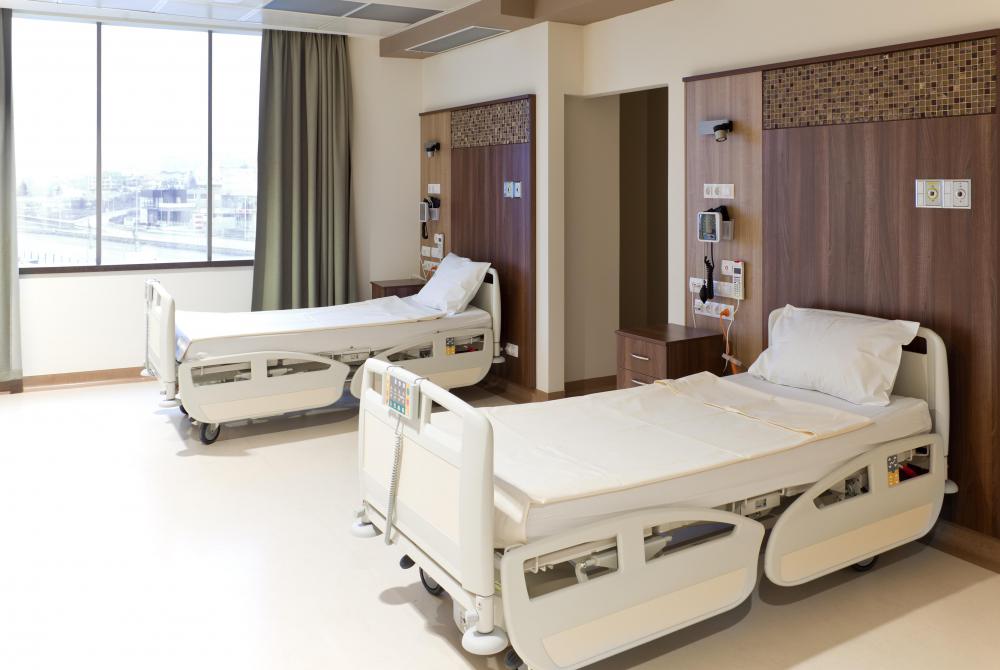At WiseGEEK, we're committed to delivering accurate, trustworthy information. Our expert-authored content is rigorously fact-checked and sourced from credible authorities. Discover how we uphold the highest standards in providing you with reliable knowledge.
What is Hospital Medicare Reimbursement?
Hospital Medicare reimbursement refers to the amount of money the US Medicare program pays to hospitals. Determination of what is paid is based on what service the hospital is performing, and this usually doesn’t take location of the hospital into account. People in Topeka or New York City who have the same type of heart surgery will have their Medicare program pay the same rates. Medicare determines what it feels is reasonable payment for a particular service rendered and pays accordingly.
Since 1997, there have been some changes in the way that hospital Medicare reimbursement works. In many cases, Medicare will not pay extra if they determine that a condition develops in the hospital that was due to either poor care or human error. In other words, many preventable conditions like infections or bedsores that cause a patient to stay longer don’t result in extra reimbursement for the hospital. Some are in favor of this system, and others claim that it discourages hospitals from accepting certain patients, especially medically fragile ones.

There are a number of hospitals that contend that hospital Medicare reimbursement rates are not adequate. Very little of actual cost may be covered, and hospitals that are required to take Medicare, like many state run hospitals, may bear the brunt of attempting to operate on extremely low reimbursement rates. This might be made up in part by the amounts charged to non-Medicare patients, and especially to those who don’t have any form of insurance. It can be a vicious cycle too, because low funding can translate to understaffing, lower pay for workers, and poorer quality of workers, which in turn may lead to more human error or neglect of patients and less money paid for people’s longer hospital stays.

One aspect of this equation though is determination of “actual cost.” It’s fairly easy to figure out standard cost, but true actual cost may be a different matter. Hospitals contract with insurers at lots of different reimbursement rates, and these varying pay scales for services don’t say much about real cost. Hospital Medicare reimbursement certainly constructs analysis of costs at the low end of the pay scale, but there are also private insurers that don’t pay much more for services.

Another way of looking at hospital Medicare reimbursement is by looking at Medicare Part A, which determines hospital coverage for each patient and each patient’s financial responsibility. Under this part of Medicare, a patient has to pay a certain amount for hospital care, and this includes a deductible over $1000 US Dollars (USD) and $100 USD per day if hospitalization is at a skilled nursing facility. One of the reasons people often purchase supplemental insurance through Medicare is due to concern over needing to pay these fees.
AS FEATURED ON:
AS FEATURED ON:


















Discussion Comments
many hospitals are reimbursed at a "percentage of allowable cost". Critical Access facilities are the exception to the rule and are reimbursed at 100 percent of "allowable cost" as calculated by medicare.
Most hospitals are somewhere between 40 percent and 60 percent of "allowable cost," which means medicare figures out what it "should" cost your hospital for a particular service, then reimburses that hospital 40 percent to 60 percent of the cost, which translates directly to: your hospital loses money on every medicare patient and needs to make that up somewhere else to break even.
The American Hospital Association has an article that breaks things down nicely. Unfortunately, I can not insert the address of this article. You can go to the AHA website and look for The Fragile State of Hospital Finances.
Post your comments